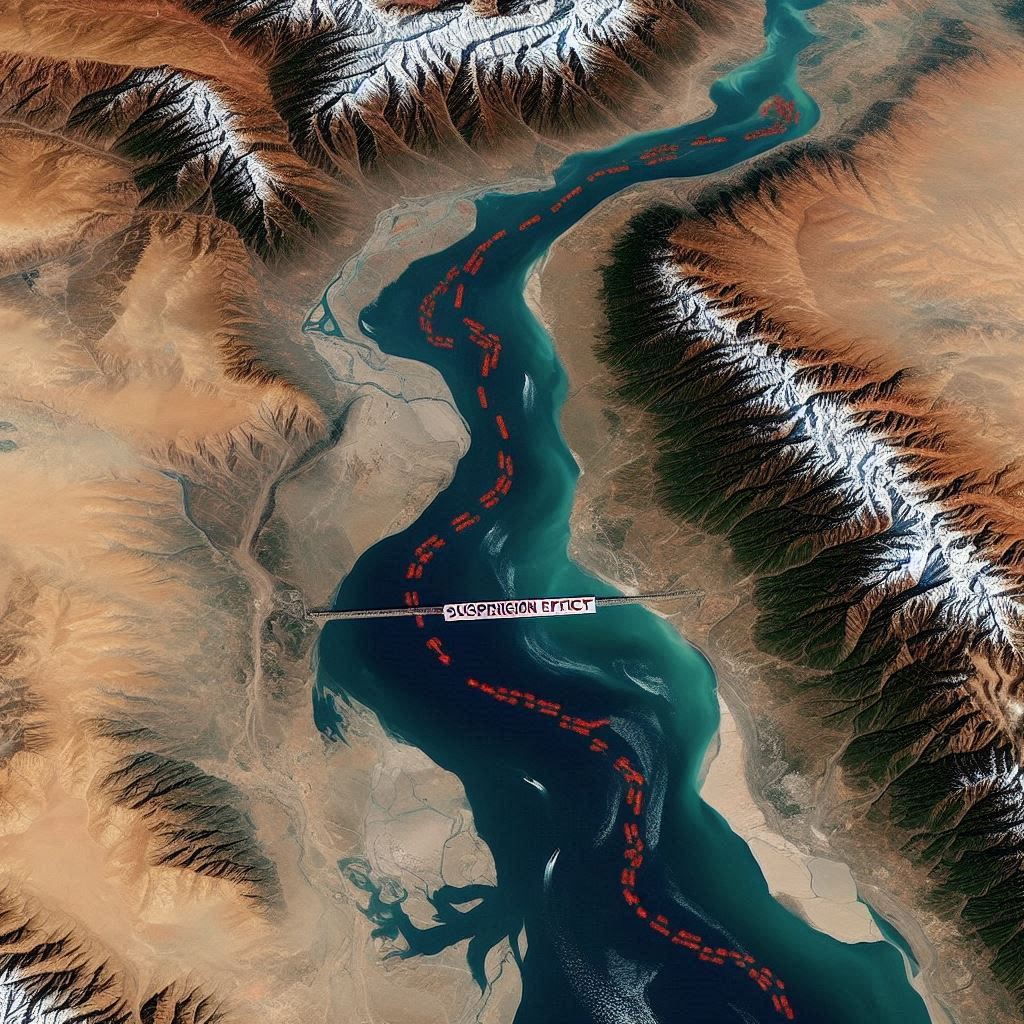India has taken major actions after a deadly terror attack in Pahalgam, Jammu and Kashmir, where 26 people, including one foreign tourist, were killed.
India Takes Firm Steps and Suspends Indus Treaty After Terror Attack in Jammu and Kashmir
These actions were decided by the country’s highest security body, the Cabinet Committee on Security (CCS). The terror attack has been linked to groups based in Pakistan. Investigations found clear signs of cross-border involvement, which has deeply angered Indian authorities.
The CCS met and reviewed the security situation in detail. It decided on some of the strongest steps taken in recent times. These measures are aimed at sending a message to Pakistan over its continued support for cross-border terrorism.
The most significant decision was the suspension of the Indus Waters Treaty. This treaty, signed in 1960, allows both India and Pakistan to share the water of six rivers. Until now, it had survived three wars and decades of tension. But this time, India decided to put it on hold, saying that such cooperation cannot continue when terrorism is supported from across the border.
Along with this, India has shut down the Attari-Wagah border for travel. This crossing point has been an important route for people moving between the two countries. The government said that those who had already crossed into India with valid documents may return by May 1, 2025. After that, the route will no longer be open.
Water Treaty Breach Pushes Trump to Threaten Tariffs on Mexico
The CCS also took decisions on visa rules. A special visa-free travel system under SAARC, called the SAARC Visa Exemption Scheme (SVES), will no longer apply to citizens of Pakistan. All visas already issued under this scheme are now cancelled. Any Pakistani citizen currently in India under this visa must leave within 48 hours. This is another strong step to cut down on all forms of contact.
Indus Waters Treaty Suspended After Six Decades
The Indus Waters Treaty was signed in 1960 with the help of the World Bank. Under this agreement, India got the rights to use the water from three rivers – Ravi, Beas, and Sutlej. Pakistan got the rights to use water from three other rivers – Indus, Jhelum, and Chenab.
Indus treaty was one of the rare examples of peace and cooperation between India and Pakistan. Even during wars and conflicts, the treaty remained in place. But after this recent terror attack, India has now put the agreement on hold.
Officials explained that such peaceful sharing of Indus river water is not possible when terrorism continues to come from across the border. They said that this attack happened just when Jammu and Kashmir was showing signs of growth, peace, and successful elections. The CCS said it could not ignore the timing of the attack and its connection to the progress being made in the region.
Groundbreaking Pact: Pakistan and Türkiye Plan Joint Helicopter Production
Experts have pointed out that this suspension of the Indus Waters Treaty could lead to serious problems for Pakistan. The country already faces major water shortages due to rising population, climate issues, and poor water storage systems. By suspending the treaty, India has taken a step that will hit Pakistan where it hurts the most.
This is not the first time that such a move regarding the Indus Waters Treaty was discussed. In the past, after major attacks, there were talks of withdrawing from the treaty, but no action was taken. This time, however, the government has moved forward with real steps.
Diplomatic and Security Measures Tightened
India has also taken action on the diplomatic front. All military officers who worked as defense advisers in the Pakistani High Commission in New Delhi are now declared “persona non grata.” This means they are no longer welcome in India and must leave within a week. India will also withdraw its own defense officers from the Indian High Commission in Islamabad. These posts are now considered cancelled.
Along with the officers, five support staff will also be removed from both countries’ missions. The overall size of the embassies in both nations will also be reduced. From 55 members, the number of staff at each embassy will come down to 30. This cut must be completed by May 1, 2025.
These moves show that India wants to reduce all ties that are not absolutely necessary. They are meant to show strong disapproval of the use of terrorism as a way to harm India. Security forces across the country have also been told to stay alert and maintain high readiness.
Officials said that the people behind the attack will be found and punished. The CCS said that the country will not rest until all those involved in planning and helping such attacks are brought to justice.
The group that has claimed responsibility for the attack is known as The Resistance Front. It is a group connected to another banned terror group. This group is said to have links across the border and is involved in several violent acts.
In recent years, India has taken a tough stance against such groups. By suspending agreements, tightening borders, and canceling special travel privileges, India is making it clear that terrorism and diplomacy cannot go together.

